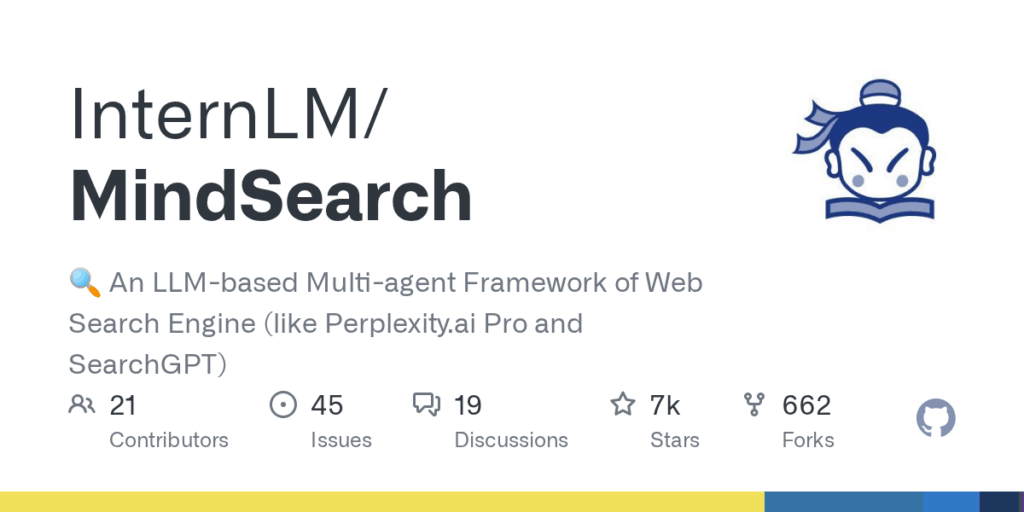MindSearch
Basic Information
MindSearch is an open source project for building and deploying an LLM-driven multi-agent web search system that mimics human search behavior to produce deep, multi-query search results. The repository provides a backend API implemented with FastAPI, configurable model backends and search engines, and multiple frontend options so researchers and developers can run a local or deployed search assistant. It is intended to be cloned, configured via environment variables, and started with supplied command-line options to specify language, model format, search engine, and asynchronous agent behavior. The project was refactored to improve concurrency using an agent module based on Lagent and includes examples for interacting with the backend directly and debugging locally.








